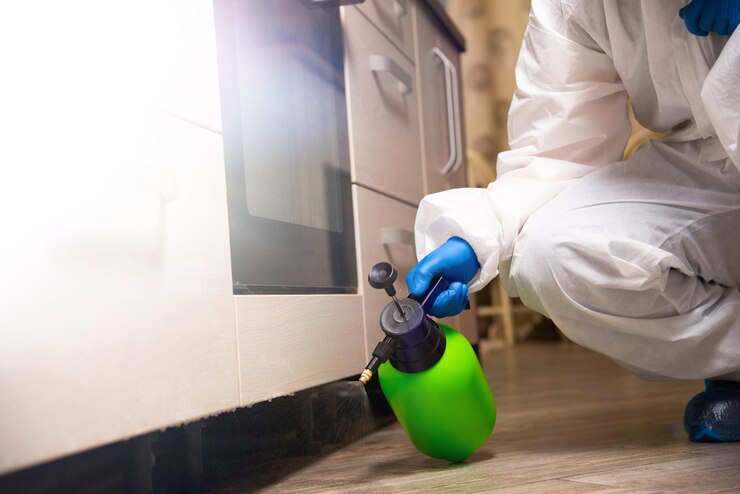 Pest Control Services
Pest Control Services
Termite infestation can cause significant damage to properties and structures, making termite control a crucial aspect of building maintenance. In India, the termite control industry has grown substantially over the years due to the increasing demand for termite control services and products.
The termite control industry in India is primarily dominated by the use of chemicals, with termiticides being the most common. The use of these chemicals has been the primary method of termite control for many years, with several companies offering termite control services to homeowners, businesses, and public institutions. The industry has been growing at a steady rate, with the increasing awareness of the need for termite control and the rising number of properties and structures that require protection from termites.
The demand for termite control services has been growing in India, with more people becoming aware of the importance of protecting their homes and properties from termite damage. Termite control companies offer a range of services, including pre-construction and post-construction termite treatments, termite inspections, and annual maintenance plans. The pre-construction termite treatment is done during the building phase, while post-construction termite treatments are done after construction is completed. The annual maintenance plans are designed to prevent termite infestation and damage from occurring in the future.
Termite control products are an essential component of the termite control industry in India. The most common products used for termite control in India are termiticides. These chemicals are designed to kill termites and prevent them from infesting buildings and structures. Other termite control products include bait stations, termite barriers, and wood preservatives. Bait stations are used to attract termites and then kill them, while termite barriers are used to prevent termites from entering buildings. Wood preservatives are used to protect wood from termite damage.
One of the most significant trends in the termite control industry in India is the increasing use of eco-friendly and natural methods of termite control. These methods are designed to be safe for humans and the environment while effectively controlling termite infestation. Eco-friendly and natural methods of termite control include the use of nematodes, borates, and essential oils. Another trend in the industry is the increasing use of technology in termite control. New technologies, such as infrared imaging and moisture sensors, are being used to detect termite infestations and prevent future infestations.
The termite control industry in India is expected to continue growing in the coming years, with an estimated CAGR of 7.2% from 2021 to 2026. The growth is expected to be driven by the increasing awareness of the need for termite control and the rising number of properties and structures that require protection from termites. The use of eco-friendly and natural methods of termite control is also expected to increase, driven by the growing concern for the environment and human health. The use of technology in termite control is also expected to increase, with new innovations being developed to improve the efficiency and effectiveness of termite control.
In terms of the termite control industry in India, it is likely that the industry will continue to grow and evolve over the next ten years. As awareness of the need for termite control increases, and as more properties and structures require protection, the demand for termite control services and products will continue to rise. The adoption of eco-friendly and natural methods of termite control will likely become more widespread, driven by the growing concern for the environment and human health.
Technology will also continue to play a vital role in the termite control industry, with new innovations being developed to improve the efficiency and effectiveness of termite control. It is possible that more advanced methods of detection and treatment will be developed, such as advanced sensors, AI algorithms, and robotics. There could also be increased integration with smart building systems, allowing for more automated and proactive termite control.
Overall, the termite control industry in India is likely to continue to be an essential component of building maintenance and protection from termite damage. As the industry grows and evolves, it will be important to stay up-to-date on the latest trends and technologies to ensure that the most effective methods of termite control are being employed.
The termite control industry in India is poised for continued growth and innovation in the coming years. With the increasing awareness of the need for termite control, the rising number of properties and structures requiring protection, and the adoption of eco-friendly and natural methods of termite control, the industry is expected to continue its upward trajectory. The use of technology in termite control is also expected to increase, with new innovations being developed to improve the efficiency and effectiveness of termite control. Overall, the termite control industry in India is critical to the protection and preservation of buildings and structures, and it will continue to play a crucial role in building maintenance in the years to come.
Leave A Comment
Your email address will not be published. Required fields are marked *